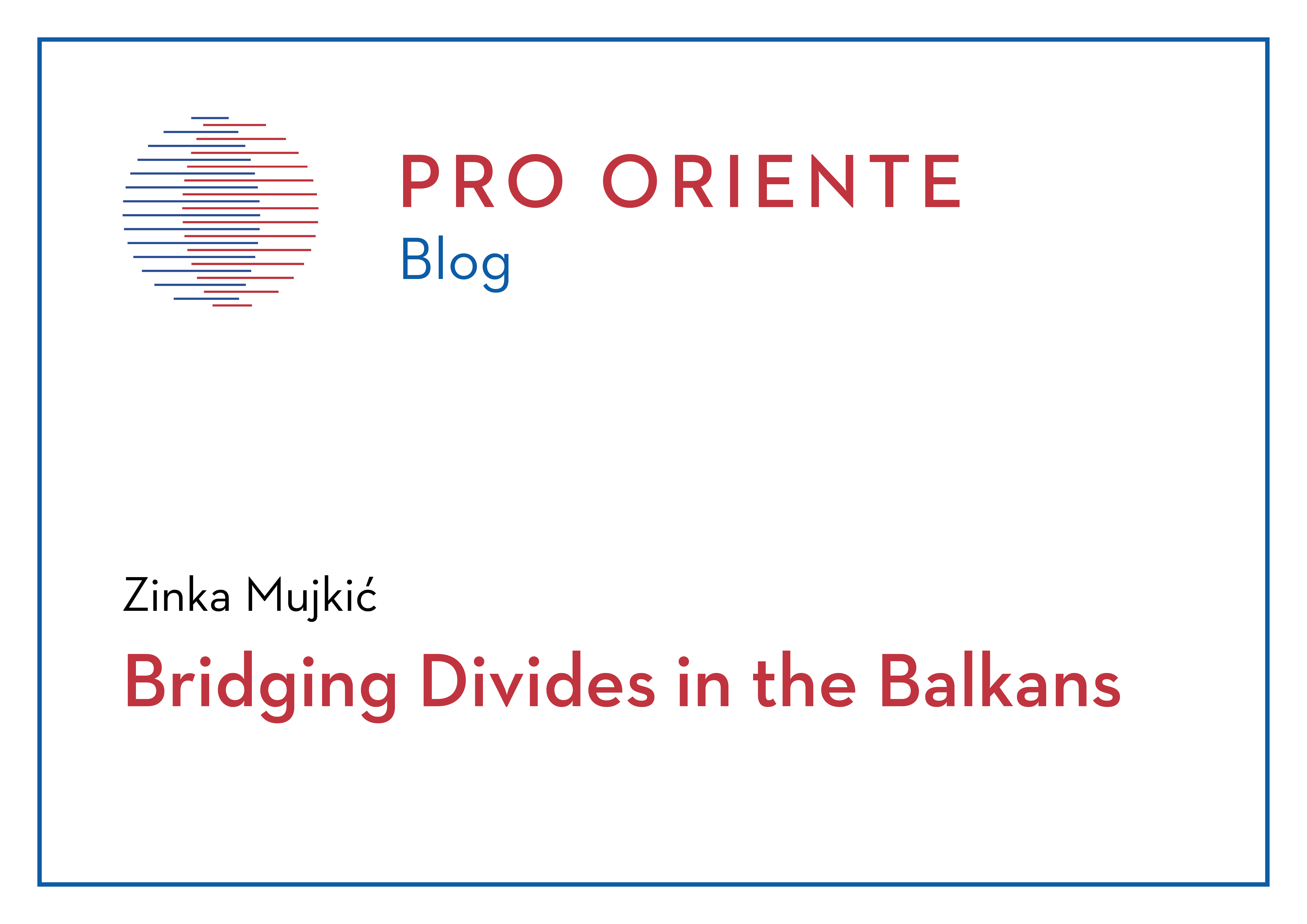Bridging Divindes in the Balkans
18. March 2024
Thema: Healing of Wounded Memories

Introduction
As a participant in the conference of the “Healing of Wounded Memories” project, I was driven to share insights into our theological initiatives addressing the multifaceted issues discussed- an endeavor both proud and humbling. The goal of exploring transitional justice and reconciliation, as outlined in the conference objectives, was profoundly impacted by the ongoing war in Ukraine, conflicts in the Holy Land, and the geopolitical tensions casting a prevailing shadow over Southeastern Europe’s stability. This circumstance has heightened our eagerness to present our ecumenical vision, particularly within the intricate tapestry of the Balkans. Here, where wounds from past conflicts linger, the theological discourse serves as a vital compass guiding the way toward reconciliation and healing. The ongoing challenges only strengthen our resolve to navigate our work in the complexities of this region.
Unraveling the Threads of Ethnoreligiosity: The Institute for Theology and Politics
Our work is spearheaded by the Institute for Theology and Politics (ITP), driven by a dedication to pioneer the first Yugoslav contextual theology rooted in the legacies of new political theology and liberation theology. It acts as a powerful force against the phenomenon of ethnoreligiosity and its consequences. This term encapsulates the toxic fusion of ethnic and religious elements, where religious institutions become instruments of ethnonationalistic agendas as their sacralizer, perpetuating social divisions and injustices. The religious packaging of this ideology serves political and private interests, divorcing faith from its true essence and privatizing it for a single nation's agenda. Probably the most disturbing outcome of ethnoreligianic communities is the contempt for the victims of the other and the glorification of their own criminals.
The consequences of ethnoreligiosity were starkly evident in the atrocities of the '90s war, including ethnic cleansing and genocide. Where I come from, Croats are exclusively identified as Catholics, Serbs as Orthodox, and Bosniaks as Muslims. These “hallmarks” were and still are very opposed. The backdrop of my personal experience, which I shared at the conference, shaped by the events of the '90s war, is not isolated but representative of a broader narrative. The personal narrative set the stage for presenting initiatives that address the enduring phenomenon of ethnoreligiosity – a deep, complex, and highly relevant challenge to the stability of the Balkan region and the broader concept of European unity.
Nurturing Change at the Grassroots: The Academy for Theology and Politics
The ITP strategy includes the Academy for Theology and Politics (ATP), a form of receptive “ecumenism from the bottom”. It strives to solve the democratization and secularization issues pressured by the sacralizing ethnonationalist discourse. The primary objective of the Academy’s educational content is to articulate and formalize the Yugoslav experience concretely. This should serve as a system of high-quality insights into Europe’s past, with a tendency to prevent the same and similar social and political turbulence. The Academy acts as a catalyst for change, encouraging students to engage in prompt social action within their respective spheres.
The Yugoslav experience is not something that can be naively reduced only to the time that is behind us, but rather, it poses a real threat to the future European sociopolitical concept, given that its survival is threatened by the same danger that ended the Yugoslav sociopolitical concept. Believing that, in addition to the legal revolution, the only true revolution is the educational one, the Academy offers participants four courses addressing the very heart of the ethnoreligiosity issue.
Regarding an Additional Concern: Islam in the Balkans
The interplay between Islam and the sociopolitical landscape of the Balkans has undergone distinct trajectories over time. Unlike the relationship of Catholicism and Orthodoxy to ethnic and national identity, the national affirmation of Bosniaks faced prolonged challenges. Historically, they were often perceived as Turks and later as Muslims, struggling to gain recognition as a valid nation compared to their Serbo-Croatian neighbors. Remarkably, the Islam practiced by Bosniaks was more secular, cultural, and civilizational than strictly religious, giving rise to an unofficial classification as European Muslims, setting them apart from their counterparts in the Near East.
The political connotations associated with Islam persistently shape the Balkan narrative. The migrant crisis of 2015-2016 exacerbated rejection and animosity towards Islam, sustaining the enduring pattern of othering. Croatian and Serbian ethnonationalists assert themselves as defenders of Europe's fortress, reinforcing its walls to repel any perceived threats and resisting cultural and religious influences. In the words of Bosniak theologian and author Enes Karić: “There are few peoples in the Balkans who, like the Muslims of Bosnia and Herzegovina, since the beginning of the 19th century, have shouldered their past as a heavy burden, experienced the present as uncertainty, and faced the future as a threat.” This sentiment underscores the unique challenges faced by the Muslim community in the Balkans, illustrating a complex intersection of identity, historical burdens, and the ever-present political dimensions associated with Islam in the region.
Conclusion
To sum up, the ITP is pivotal in reshaping theological discourse and addressing wounds inflicted by ethnoreligiosity in the Balkan region and broader. In a region haunted by historical traumas, these endeavors are not just academic pursuits but essential steps toward lasting healing and reconciliation. The ITP is not merely an institution but a sort of catalyst for transformative change, urgently needed in the complex tapestry of Southeastern European societies.



